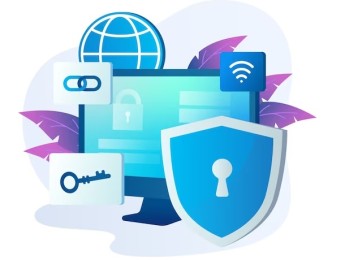A successful organisation focused on selling products or providing a service will eventually grow to the potential of branching out internationally. This step is incredibly important and could result in major success or failure. To ensure a smooth transition to international territory, the organisation should invest in establishing an experienced and skilled global sales team.
A global sales team will provide much further insight than a national sales team can. Hiring individuals from the desired selling region will aid in establishing a business there, as they will have a greater understanding of the customer wants and demands specific to that area. They will also be more adept at communicating with local customers and can share their knowledge on the ideal selling approach.
It is important for an organisation to be aware of emotional intelligence to further enforce sales and build rapport with customers. Emotional intelligence competencies will enable salespeople to emotionally engage with customers and develop personal relationships with them. This can result in an emotional association with that product or service that cannot be found among competitors.
During this course, you’ll learn:
- Understand the importance of effectively managing a global sales team within an organisation.
- Develop strong competencies surrounding verbal and non-verbal communication and how to use these to communicate effectively.
- Assess what characteristics, traits and skills contribute to successful leadership.
- Identify the role of emotional intelligence within a sales environment.
- Utilise various negotiation techniques to close a sale.
- Analyse customer attitudes and behaviours to adjust the sales approach accordingly.
- Conduct performance reviews and provide coaching and mentoring sessions to necessary employees.
- Evaluate the necessity of social selling and generating business acumen in a global contest.
This course is designed for anyone within an organisation who is responsible for managing sales teams on an international level. It would be most beneficial for:
- Development Managers
- Operations Managers
- Sales Directors
- Sales Managers
- Business Owners
- Sales Executives
- Regional Managers
- Marketing Directors
This course uses a variety of adult learning styles to aid full understanding and comprehension. Participants will review established organisations with successful global sales teams to highlight factors contributing to success and potential improvement areas.
Participants will be granted the opportunity to participate in a variety of learning exercises and methods to develop their knowledge and skills related to the taught content. These include presentations, video materials, case studies, and group activities. This range will allow them to fully practise their skills and receive constructive feedback from one another.
Day 5 of each course is reserved for a Q&A session, which may occur off-site. For 10-day courses, this also applies to day 10
Section 1: Introduction to Sales
- Understanding the key influences in sales on a regional and international level.
- Identifying what skills and characteristics contribute to effective leadership.
- The importance of cross-functional collaboration and how successful sales contain influence from different factors.
- The necessity of planning, strategizing, and monitoring sales performance.
- What roles are found within sales, and how they are managed?
Section 2: The Role of Emotional Intelligence
- Defining emotional intelligence.
- How a positive emotional intelligence impacts customers and the working environment.
- Recognising personal emotional triggers, motivations, and drives.
- Analysing the power of empathy.
- Using emotional intelligence to generate rapport with customers and build relationships with employees.
- Developing communication capabilities and identifying customers' non-verbal cues.
Section 3: Emotional Intelligence Sales Culture
- Comprehending the importance of social responsibility.
- Encouraging emotionally intelligent teams.
- Promoting effective collaboration through trust-building exercises and group activities.
- Providing rewards and incentives to recognise hard work and encourage further effort.
- Empathising with customers to build loyalty and meet the emotional demands of patrons.
Section 4: Global Sales Demands
- Assessing past and present market trends and accurately predicting future trends.
- Preparing for future market trends.
- Understanding typical changes in customer behaviours and why they occur.
- Emerging changes in the sales process and making necessary adjustments.
Section 5: Consultative Sales Approach
- Defining what a consultative sales approach is.
- Identifying customers' personal issues through communication and providing them a solution through sales.
- Developing communication skills, including questioning, listening, and negotiating.
- The art of storytelling.
- Adding value to a product through emotional connection.
Section 6: Cross-Cultural Communication
- Cross-cultural competency.
- Modifying products or services best suits a particular culture’s wants and demands.
- Complying with internal business customs and etiquette.
- Establishing mutual expectations of business functions and transactions.
- Secrets of diplomatic communication.
Section 7: Leading Efficiently in a Global Market
- Examining how market trends fluctuate depending on region and customer needs.
- Hiring the right talent based on various factors – communication strength, sales competency, cultural awareness, and experience.
- Creating action plans detailing expectations, goals, objectives, and desired performance levels.
- The importance of stress and time management.
- Building and managing positive relationships within the workplace and mitigating conflict.
Upon successful completion of this training course, delegates will be awarded a Holistique Training Certificate of Completion. For those who attend and complete the online training course, a Holistique Training e-Certificate will be provided.
Holistique Training Certificates are accredited by the British Assessment Council (BAC) and The CPD Certification Service (CPD), and are certified under ISO 9001, ISO 21001, and ISO 29993 standards.
CPD credits for this course are granted by our Certificates and will be reflected on the Holistique Training Certificate of Completion. In accordance with the standards of The CPD Certification Service, one CPD credit is awarded per hour of course attendance. A maximum of 50 CPD credits can be claimed for any single course we currently offer.
- Course Code PM1-115
- Course Format Classroom, Online,
- Duration 5 days














